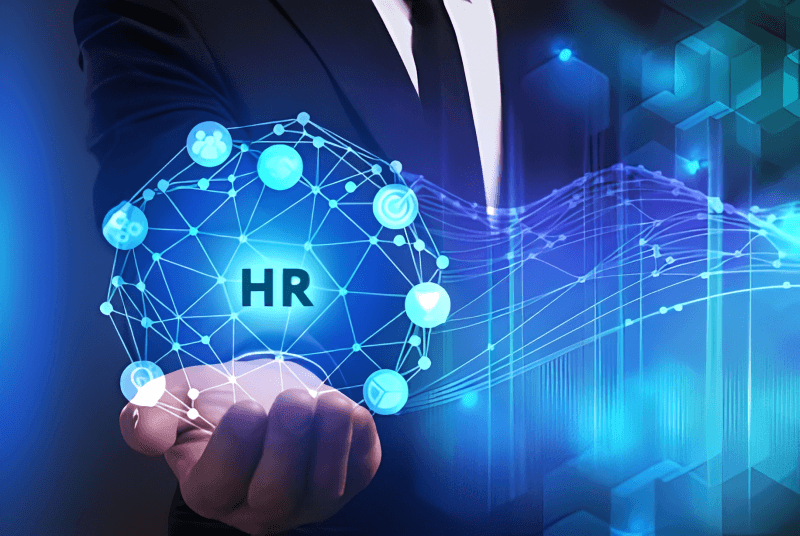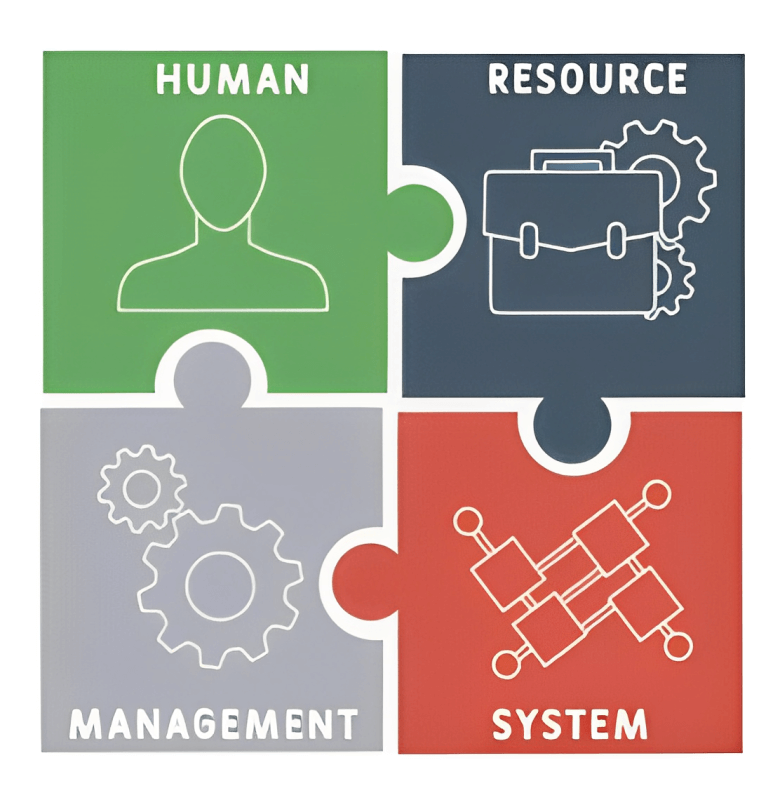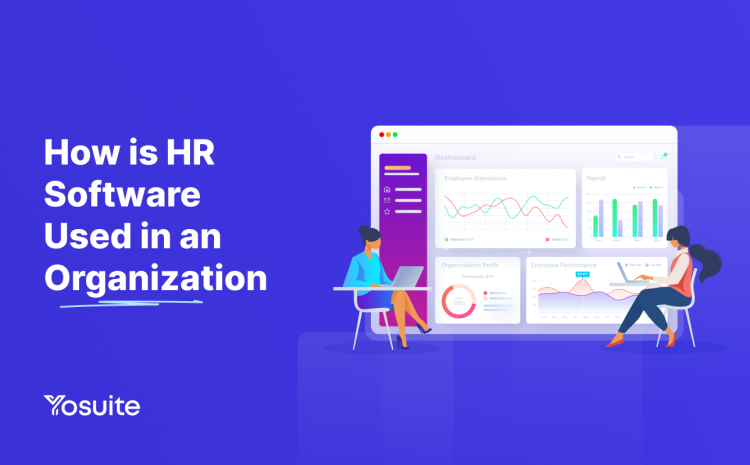While it’s commonly understood that human resources (HR) departments oversee essential tasks like recruitment and payroll, their responsibilities often extend beyond these well-known functions.
HR professionals in larger corporations may be organized into specialized units handling diverse responsibilities. These include employee safety management and implementation of benefits programs. While smaller enterprises handle HR functions with the owner and assistant.
Regardless of company size, they use Ai HR Software for efficiency and organized workflow. Let’s examine the important elements of Ai HR software in elevating an organization’s HR operation.
What is Ai Based HR Software?

HR software, also known as Human Resources Management System (HRMS) or Human Capital Management (HCM) is a digital solution. It was designed to assist organizations in managing all aspects of their workforce, from recruitment and onboarding to payroll and performance management. It’s essentially a suite of tools that automates and simplifies various HR processes, making them more efficient, accurate, and compliant.
Now, what it does?
- Automates administrative tasks.
- Stores and organizes employee information securely.
- Simplifies recruitment and onboarding processes.
- Facilitates communication between HR, managers, and employees through portals, notifications, and feedback tools.
- Automated workflows and reporting tools ensures adherence to employment laws and regulations.
If you are wondering what specific HR Ai software is needed for your organization, explore the top Ai tools for HR intended for your purpose.
Types of Ai Software for HR
There are several types of Ai software for HR designed to meet specific organizational needs. These include:
➡️ Human Resource Information System (HRIS):
Focuses on managing employee data and simplifying HR tasks.
➡️ Applicant Tracking System (ATS):
Streamlines the recruitment process by tracking and managing job applicants.
➡️ Time and Attendance Software:
Automates tracking employee working hours, breaks, and attendance.
➡️ Performance Management Software:
Simplifies the process of managing and assessing worker performance.
4 Core Functions of Ai Software for HR

In today’s fast-paced business world, managing a happy and productive workforce takes more than just spreadsheets and sticky notes. That’s where ai based HR software comes in, wielding powerful tools to simplify essential functions and empower both HR teams and employees. But with so many features and best Ai tools for HR available, it can be hard to know where to start. So, let’s dive into the 4 core functions of HR software that lay the foundation for a thriving organization:
Employee Information Management
Manually managing employee information is a task filled with challenges, especially as your company grows. From paper forms to scattered spreadsheets, the human hand is prone to errors, inefficiencies, and security risks. But fear not, HR software swoops in like a digital knight in shining armor, ready to transform your employee data into a simplified, secure, and insightful asset.
With the presence of HR software, employee’s information is accessible in just one click. It provides convenient access to:
- Contact info
- Work history
- Performance records
- Training modules completed
- Relevant certifications or accolades
HR software consolidates every information into a single and accessible centralized data base. This eliminates the risk of lost paperwork, duplicate entries, and inconsistent data across different systems.
Additionally, manual data entry is error-prone, but HR software comes with built-in validation rules and automated workflows to ensure accuracy and consistency. The software can keep you up-to-date with changing regulations and automatically generate reports for compliance audits.
Furthermore, the software prioritizes data security, implementing measures to protect sensitive information.
Recruitment and Applicant Tracking
HR software simplifies the hiring process by leveraging technology to manage various stages of recruitment efficiently. It begins with job posting and distribution across multiple platforms, ensuring maximum visibility for available positions.
The software includes features such as:
- Applicant tracking
- Resume parsing
- Automated screening
These features allow recruiters to systematically manage candidate information and identify suitable candidates. Advanced tools facilitate interview scheduling, collaboration among hiring team members, and a focus on enhancing the overall candidate experience.
Moreover, HR software provides analytics and reporting tools for organizations to assess the effectiveness of their recruitment strategies. Metrics like time-to-fill, cost-per-hire, and source effectiveness offer valuable insights. These metrics enable continuous improvement in recruitment processes. Overall, HR software contributes to a more efficient and candidate-centric approach to hiring.
If you are asking how much HR software will cost you, well, find out by reading …..
➡️ HR Software Price Tag
Time and Attendance Management
HR software automates time and attendance tracking. This marks a pivotal shift in workforce management. It alleviates the pitfalls associated with manual processes. This precision leads to error-free payroll processing ensuring that employee compensation accurately reflects their actual working hours.
The automation on time and attendance management is notable for enhancing operational efficiency. It strengthens employees’ confidence in the reliability of payroll procedures enhancing employees productivity.
Moreover, automated attendance monitoring ensures policy compliance, supports transparent reporting, and fosters an accountable workplace culture. Adopting HR software for time and attendance tracking is a strategic move for proactive and data-driven workforce management.
Performance Management
HR software in managing employee performance is a specialized solution designed to optimize the entire performance management process. It simplifies goal setting by enabling the establishment of clear and measurable objectives. It also aligns individual goals with the broader organizational strategy. The software’s automation ensures regular and comprehensive assessments that are fair and aligned with company objectives.
Facilitating continuous feedback and communication fosters a culture of ongoing dialogue between employees and managers. This real-time exchange allows for agile adjustments and supports professional development. Additionally, the software often has features to track skills and competencies. It identifies areas for improvement and facilitates targeted training opportunities.
Furthermore, HR software enables employees to create personalized development plans. These plans outline steps and resources for skill enhancement, aligning with individual career objectives. With robust analytics and reporting features, organizations can assess performance trends, identify high performers, and make data-driven decisions for optimal workforce management.
FAQs
How scalable is HR software for different company sizes?
HR software is scalable, serving both small businesses and large enterprises. It offers customizable features to adapt to varying organizational sizes and structures.
Can HR software integrate with other business applications?
Many HR software solutions offer integration capabilities. They can connect with other business applications like payroll systems. They also integrate with accounting software and project management tools.
How can small businesses benefit from HR software?
HR software helps small businesses by automating routine tasks. It also ensures compliance and fosters a positive employee experience. It enables small businesses to compete with larger counterparts in talent management.
Is HR software suitable for remote work environments?
Yes, HR software is adaptable to remote work environments. It helps with virtual onboarding. It tracks remote attendance. It ensures effective communication. It promotes seamless remote work experiences.
What security measures are in place for HR software?
Top HR software solutions prioritize security with strong measures. These include data encryption, secure access controls, and regular audits. These measures safeguard sensitive employee information.
Can HR software be customized for specific needs?
Many HR software solutions offer customization options. These options align with the unique needs of an organization. The software adapts to the company’s requirements and workflows. This ensures that it is specific and customized for the company.
How does HR software contribute to employee morale?
HR software boosts employee morale by reducing admin tasks and offering self-service options. It also supports professional growth. This fosters a positive work environment that values employee well-being.
How is HR Software Used in an Organization: Final Thought
Enhancing productivity with Ai HR software is within your reach. Leveraging and effective implementation of HR software is crucial for workplace success and error-free HR operations. HR software is vital for simplifying administrative tasks, enhancing recruitment, performance and time management processes. It plays a central role in fostering employee development creating a dynamic and efficient work environment.
Embracing HR software is a must if you are looking for an efficient and organized HR operation. The tool also fosters a positive employee experience due to its transparency and versatility. With so many options on the market today, remember to examine the best Ai human resource tools and choose one.



Leave a Reply